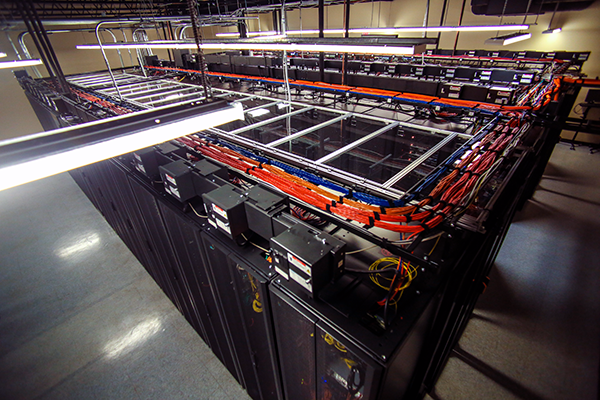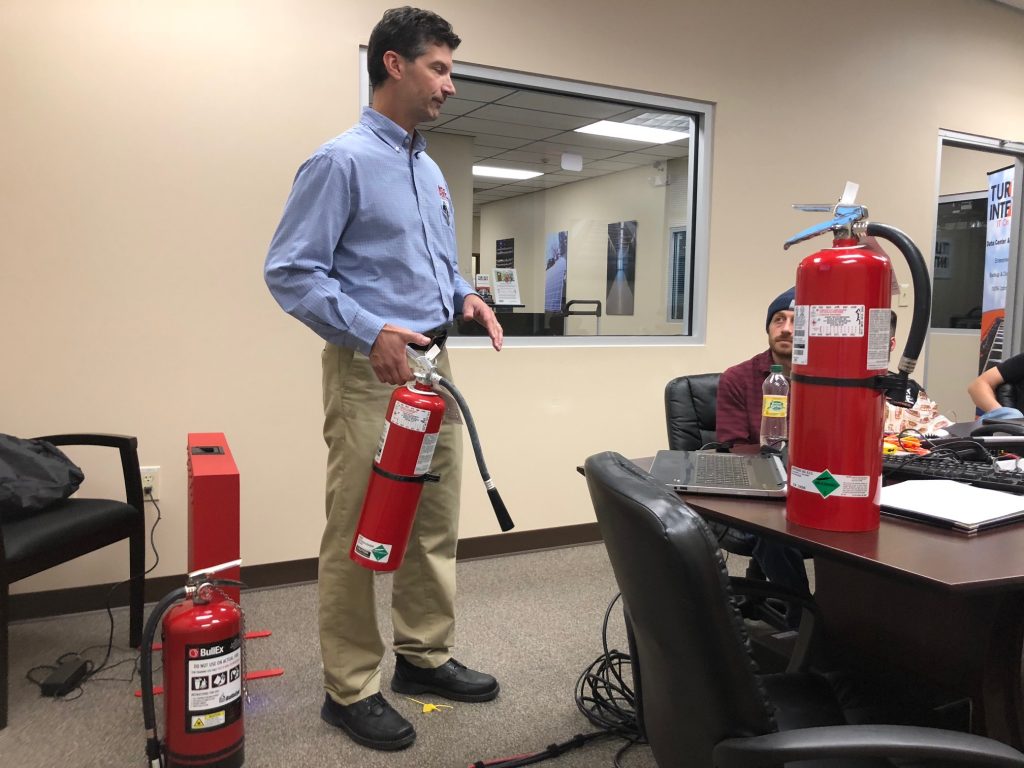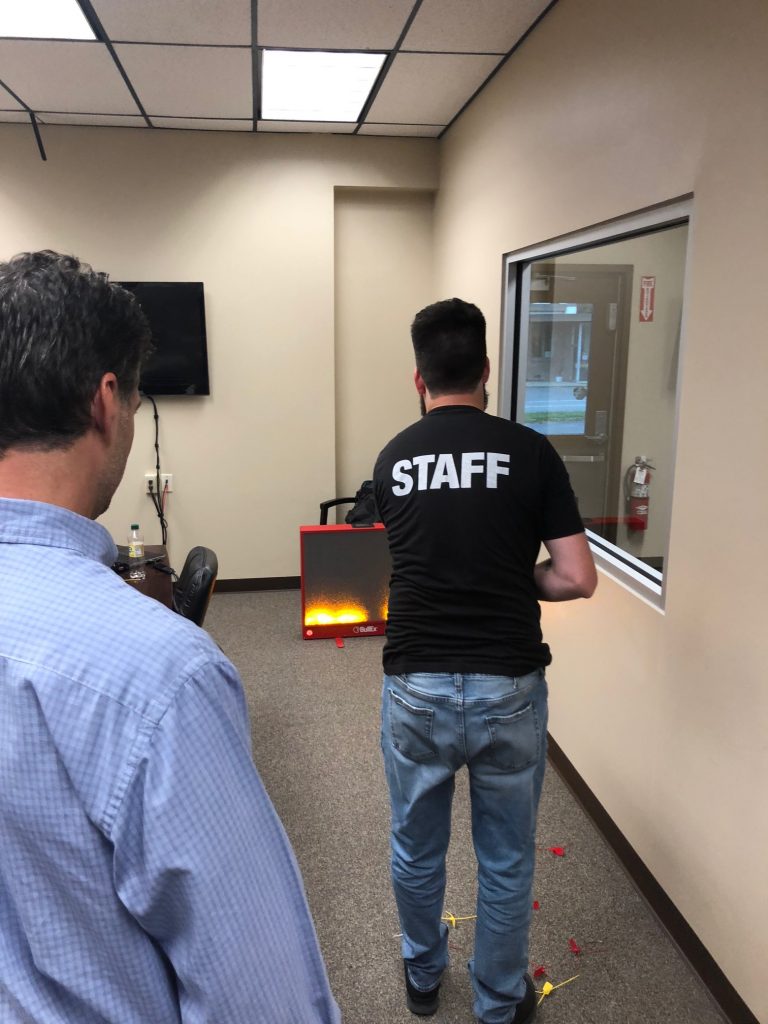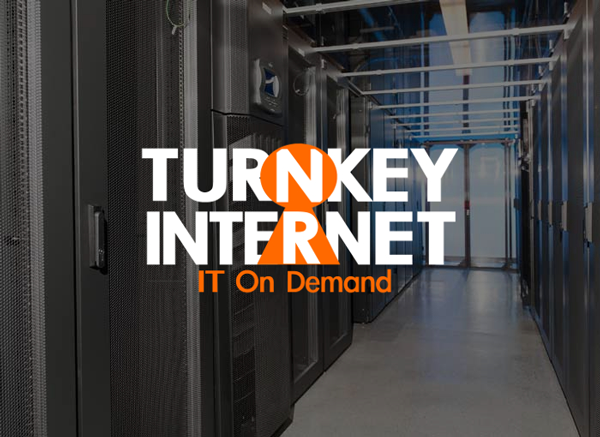Archive for the ‘data center’ tag
Why Companies Are Choosing Data Center Colocation 1 comment
For many companies, offloading the care and responsibility of their computers, servers, and IT infrastructure onto trained IT professionals at a data center carries multiple advantages. This type of service, known as Colocation, has steadily expanded year after year, with leading industry experts expecting the global colocation market to exceed $40 billion by the end of this year. An in-depth examination shows that five major considerations lie behind the decision by CIOs and other corporate officials to rely on data center and colocation providers.
1. Connectivity
Servers, especially for web hosting, are only as good as the internet connectivity that allows them to cram immense flows of data up and down the line, and colocation providers typically subscribe to multiple high-level broadband providers to establish superior bandwidth redundancy and to encourage competition that results in cost savings for both the colocation provider and server owners. Quite apart from the sheer efficiency of sharing top-tier bandwidth access across innumerable servers, the climate-controlled environment keeps servers within a consistent temperature range to ensure that sensitive network equipment and server components don’t fail from extended exposure to excessive heat.
2. Stability
The impact on productivity from moving corporate offices, encountering a natural disaster or suffering through an extended interruption of electrical power can be disastrous. Even the most efficient company may experience a series of unfortunate events that repeatedly delay its return to full operational status. In the meantime, customers may be yelling about misplaced orders and bungled services, and employees may be left without real work as core business processes fail to function as expected. More than a few CIOs and other upper-management staffers prefer instead to shield the company’s critical IT infrastructure from such potential chaos by entrusting them to an efficient data center and colocation provider with multiple power backups and contingency plans for dealing with IT disasters.
3. Security
In an age of brazen corporate espionage by overseas agencies, ensuring physical data security can be a challenge. Even in the absence of foreign or domestic interest in valuable intellectual property held by a business, employee honesty and awareness of basic security precautions aren’t always guaranteed. Hard drives and other computer components sometimes have a habit of walking out the door, and allowing direct physical access to servers located inside open offices also increases the risk of malicious hacking attacks by criminals through the agency of malware-laden USB sticks left lying around in company parking lots.
A well-equipped data center will lock down its facilities with multiple security measures, including burglar-resistant, alarmed entry and exit doors; coded access procedures that track all physical access to hosted servers; strategically placed surveillance cameras; biometric scanners to prevent unauthorized access by intruders and even individually locked cages for each client’s servers. Spreading the cost of these high-security measures across hundreds or thousands of servers allows the data center to efficiently offer economies of scale otherwise unavailable to the great majority of small to mid-size businesses.
4. Scalability
In a typical office IT environment, if a company quickly needs to increase bandwidth or add physical space to the office to accommodate additional IT equipment, they could wait weeks or even months. However, when companies utilize colocation, the data center can provide huge amounts of additional bandwidth within minutes, as well as provide more physical space to host additional servers or hardware as needed.
5. Financial Predictability
Maintaining in-house data and IT facilities typically invites unexpected capital outlays that play havoc with limited quarterly budgets. Many firms prefer the predictability of a fixed monthly outlay that covers the great majority of expenses associated with managing critical IT hardware capability across all corporate functions. Strategic planning and corporate accounting become easier with fewer surprises for the unwary.
Only robust discussion among company principals can determine the ultimate wisdom of outsourcing IT hardware management functions to a dedicated third party. However, the cost savings, significantly improved operational stability and peace of mind offered by the colocation option have proven to be compelling value propositions for an expanding number of commercial enterprises, as well as SMBs and other organizations. For more information regarding colocation as well as the Data Center and Cloud Solutions we provide here at TurnKey Internet, visit our website: https://www.turnkeyinternet.net/colocation/
Follow Us :
Share :
Data Centers vs. In-Office Server Rooms no comments
Businesses of all sizes need to be online in order to stay competitive and grow. Initially, most businesses relied on building their own online IT infrastructure, by converting a spare room or space in their office or even their home, into a “Server Room.” There was no thought of cooling systems or ventilation. No notion of backup power systems, or any real working order was to be found in these Server Rooms.
Today, businesses need their operations to run with super speeds, be secure, maintained, monitored, and most of all be redundant. To achieve this, businesses are moving away from on-site or in-office server rooms and instead are utilizing Data centers.
Here are some of the key advantages to a Data center, a Server Room does not have:
Security and Monitoring
Most Server Rooms do not have a high volume of security. Besides the buildings overall security, there may be a lock on the Server Room door. Data centers pride themselves in the security features they offer. All entrances and exits are secured with a key coded entry system, as well as alarms. Not just alarms for entry. Alarms for temperature control, air pressure, fire suppression, etc. Data centers also have network cameras, accessible to their staff and security team in a needed event. The racks or cages the servers are housed in are all individually locked and are only opened for pre-authorized individuals or by the data center staff, if needed.
Bandwidth
What good is your server if you have a fixed bandwidth rate? Most in-office Server Rooms are capped off and limited by their ISP as they are using a residential internet service. Datacenters do not use any type of residential internet service and are able to set their own bandwidth limits.
Backup Power
If there is a power failure at your business, do you have a backup power plan? Most Server Rooms run from the same power source, as the full office. Making your sites and servers go down if there is ever a power failure. Data centers have a plan for any type of failure. When it comes to power failures, most data centers have battery backups, automatically triggered if the main power supply is not responding. When the system sees the backup batteries are being utilized, another backup power source is engaged, the generator. At this point the battery backups turn off and all power is controlled by the generator until normal power is restored.
Affordability
With a Server Room, you are accumulating all the costs that go along with it. You may have had to cut advertising short or possibly even lay off good employees as the costs to maintain and house your IT equipment have risen. At a data center all those costs are tied into your package and at a much, much lower cost.
Controlled Environment
Data centers control the cooling and humidity – to a precise and perfect level to keep your equipment running as long as possible. Storing equipment in non-conditioned environmental space like your server room or office closet will shorten the life of your equipment significantly (meaning it will cost you real money to replace broken equipment sooner). Electronics are sensitive to things like electrical and static shock, which occur due to improper humidity (moisture) and you can even find corrosion on the electronics in some poor environmental conditions. Its crucial if you have valuable equipment to store it in a properly humidified and cooled location like a data center.
Some modern data centers, like TurnKey Internet’s Green Data Center , offer one additional benefit on top of everything above. Your IT equipment and servers consume less energy in terms of cooling and power draw in a modern green-focused data center – and in TurnKey Internet’s data center your equipment consumes energy provided by only by the Sun (on-site solar array) and Water (Hydro power) providing zero carbon foot prints for your IT infrastructure versus having it at your office.
Our green data center is the choice of clients in over 100 countries who turn to TurnKey as both an economical and ecological answer to their IT needs, & TurnKey’s environmentally-conscious approach assures low-impact, low-energy answers to them. Click Here for more information about TurnKey Internet’s Green Data Center.
Follow Us :
Share :
Migrating To The Cloud no comments
Choosing to migrate your company’s IT infrastructure and data to the cloud is no easy decision. However, the number of benefits that the cloud offers to you and your business can make this change well worth it. The cloud is able to offer you many more security features and guarantees for your data than you typically have in your own on-site server room. Let’s take a look at some of the benefits migrating to the cloud will provide.
Better Data Security
Possibly the most important aspect of cloud storage, data security is the main priority of cloud services. With some high-profile companies becoming the victims of data breaches in the last couple of years, cloud providers have upped their investments in access control, identity management, intrusion prevention and virus and malware protection. These improvements have resulted in increased security protocols and more protection for communication between users and servers.
Improved Availability
Cloud providers are exceptionally reliable. The connection is on 99.99 percent of the time, only going down for maintenance, and you will have access to your applications and data at all times and from practically anywhere. Data stored in the cloud is available to those who need it no matter where they are located. With today’s internet connections via mobile devices and smartphones, you will be able to access your data and your applications no matter what you are doing.
Reduced Costs
Migrating all of your data to the cloud will allow you to reduce the size and cost of your on-site location. For example, you will be able to remove servers, lower your software costs and potentially reduce IT staff without compromising the integrity or security of your data. Most cloud storage is paid on an as-needed basis, so you will only pay for the amount of server and infrastructure capacity that your business needs, and you can change that amount at any time.
Finding the Right Data Center
Once you have decided that storing your information in the cloud is the right decision for your business, you will need to find the right provider and data center. You are placing all of your important data in the hands of this provider, so you must make sure that you choose the right one. Technology is constantly changing and improving, and you need to be able to trust that your cloud provider will keep up with the evolution of security needs. Before choosing a data center, you should inquire about the physical security of the facility, what back-up measures for power and internet are in place, as well as what level of support is available to you if you need it.
When you are searching for a data center, ask potential candidates about their compliance to SSAE-18 and SOC. This set of standards measures the amount of control that a service organization maintains over your sensitive data and financial information. An audit will report any flaws in data flow. You should also inquire about compliance to the Health Insurance Portability and Accountability Act (HIPAA). This regulation ensures the security and privacy of private health information that is stored on cloud services. A HIPAA audit will demonstrate holes in the security of such specific and sensitive data. If your data center choice is compliant with both of these standards, you can rest assured that your sensitive data will be monitored and its integrity will be maintained.
TurnKey Internet owns and operates its own private, SSAE-18 SOC 1 & SOC 2 certified, HIPAA compliant data center located in New York’s Tech Valley region. Our data center was a former U.S. Government building that was purchased by TurnKey in 2010. It is made to U.S. Federal Government standards, with 1-foot thick concrete along the perimeter, plus additional reinforced walls and security enhancements. We have installed advanced security systems, and infrared based surveillance monitoring cameras. Employees all undergo background screening, and clients are not permitted within the facility except with photo ID and escorted by trained security personnel at all times.
Owning our data center, we have been able to design, build and maintain every aspect of its construction to provide an ideal hosted server environment. This allows us to provide our clients fast, secure and reliable performance at all times. We’ve also been able to leverage the state-of-the-art in green technologies, making our data center among the most energy-efficient world-wide. For more information, visit https://turnkeyinternet.net/datacenters
Follow Us :
Share :
Does Your Data Center Staff Take Fire Safety Training? – National Fire Prevention Week no comments
At TurnKey Internet, we take fire prevention, protection, and safety very seriously. In honor of National Fire Prevention Week, our entire team, from front desk, to back office, to engineering and data center staff, all recently participated in our latest Fire Safety training, presented by Albany Fire Extinguisher.
Since 1922, the National Fire Protection Association has sponsored the public observance of Fire Prevention Week. In 1925, President Calvin Coolidge proclaimed Fire Prevention Week a national observance, making it the longest-running public health observance in our country.
On top of the fire safety training, TurnKey Internet’s Data Center utilizes state of the art fire detection and suppression systems including a fully integrated and automated FM-200 Fire Protection and Safety system. Our alarm system is fully monitored 24x7x365 by our own in-house staff and is directly tied to the local fire department. FM-200 (Heptafluoropropane) is a safe, clean fire-protection agent that wont harm people, the environment or cause collateral damage to technical equipment.
Follow Us :
Share :
What is the Difference Between SSAE 18 and SSAE 16 vs SAS 70 Standards? no comments
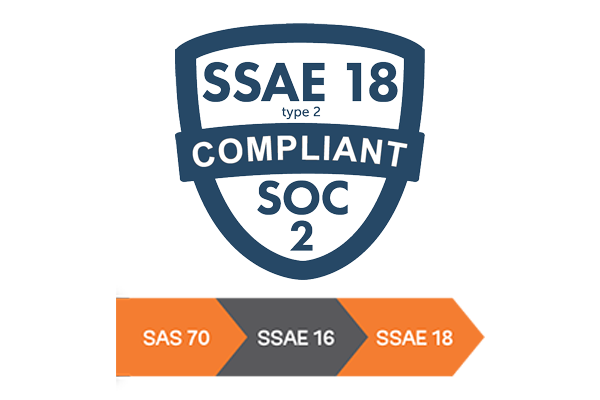 The Statement on Standards for Attestation Engagements, or SSAE, was developed by the American Institute of Certified Public Accountants (AICPA). CPA firms must follow the rules set forth by the AICPA when conducting an audit of a company’s financial statements or attestation of a company’s internal controls.
The Statement on Standards for Attestation Engagements, or SSAE, was developed by the American Institute of Certified Public Accountants (AICPA). CPA firms must follow the rules set forth by the AICPA when conducting an audit of a company’s financial statements or attestation of a company’s internal controls.
SSAE 18 (previously known as SSAE 16 or SAS 70) contains the rules for conducting an attestation of a service organization’s internal controls and issuing a System and Organization Controls’ (SOC) report. Service auditors are required to follow these rules when conducting an SSAE 18 engagement. The primary objective of the SOC report is to provide information about the internal controls and security practices at a service organization. The role of the service auditor is to perform tests in order to provide independent assurance about the accuracy and adequacy of that description of controls.
In April 2010, the AICPA introduced SSAE 16. It replaced SAS 70 and was designed to closely mirror international accounting standards. It provides improved assurance about the reliability of controls throughout the report.
In April 2016, the AICPA introduced SSAE 18. The intent was to standardize attestation criteria. It replaced SSAE 16 and required service auditors to enhance their risk assessment procedures. Service organizations are required to take more control and ownership of their internal controls around the identification and classification of risk and appropriate management of third party relationships.
TurnKey owns and operates its own private, SSAE 18 SOC 1 & SOC 2 certified, HIPAA compliant, datacenter located in New York’s Tech Valley region. Owning our datacenter, we have been able to design, build and maintain every aspect of its construction to provide an ideal hosted server environment. This allows us to provide our clients fast, secure and reliable performance at all times. We’ve also been able to leverage the state-of-the-art in green technologies, making our datacenter among the most energy-efficient world-wide.
Follow Us :
Share :
How Website Speed Affects Your Business no comments
If you’ve ever waited for a slow website to load, you know how frustrating it is. It only takes a few seconds – if that – for you to start getting impatient and considering going to another site.
Visitors to your site feel the exact same way. People have grown increasingly accustomed to instant results, and most web users expect web pages to show up on their screen right after clicking or tapping. A slow website can directly, and negatively, impact your sales and ability to draw in new clients.
However, it’s not just sales that take a hit when your website is crawling. Slow load times can result in reduced search engine rankings and depressed conversion rates. Additionally, a slow website is often the sign of a design problem, which may mean that you’re using more bandwidth to do less.
The Five Second Rule
According to a recent study, one-third of online shoppers will leave your site if it takes more than five seconds to load. Along with the fact that five seconds is a very short amount of time to work with, the study found that people are getting more impatient; a previous study showed that you had six seconds before people left.
If that weren’t bad enough, a study done by Google that specifically looked at mobile users found that these individuals are even more impatient. More than half of those involved in the study will leave a mobile website if it doesn’t load in three seconds.
What this means is that your website design needs to focus on speed instead of design elements. To ensure that people will go to your website – and stay – your site needs to be fast and streamlined.
Load Time Affects Sales
If you’ve got your website loading under five seconds, you may get visitors to stick around, but it won’t necessarily net you a sale. The study that found many people will leave after five seconds also determined that a 2.4 second load time led to the highest conversion rates. This is backed up by data collected by Kissmetrics, which showed that a one second delay in website response time can lead to a seven percent conversion rate drop.
The collected data also showed that people who made purchases from a site but were unhappy with the site’s performance were less likely to buy from the site again. In other words, the bare minimum to get someone to stay may be five seconds, but if you want to make a sale, and keep making sales, your site may need to load even faster.
Google Is Impatient Too
Load times don’t just affect whether or not a potential customer stays on your website. They may also play a part in determining if someone ever arrives at your site. This is because Google looks at user experience when calculating search engine rankings.
There are a number of factors that go into user experience, but load time is a significant one. Search engine ranking is very competitive since it determines where your site shows up in search results and if it shows up on the first page. With less than 80 percent of people clicking to the second page of search results, it’s essential that you’re doing everything you can to be on page one.
Google offers a website to check your site’s performance, and according to the search engine, a score of 85 or higher out of 100 means that your site is doing well. Anything below that likely spells trouble when it comes to your search engine rankings.
It’s also important to note that Google has started to give websites that are mobile friendly higher rankings when people do a search from a mobile device. If you have a desktop site that loads quickly but don’t create an equivalent mobile site, you could see a drop in your mobile search rankings.
Slow Load Times Could Mean Back End Problems
There are a variety of reasons that your website may be running slowly or simply not loading as quickly as visitors would like. Many common reasons relate to design, such as running too many scripts or filling up the page with large media files.
These problems can be resolved easily by streamlining a website and cutting down on files and scripts that bog the loading process down. Doing this may help to improve the performance of your web server as well. If the media files on your site that are taking up enormous amounts of bandwidth are compressed or if you reduce the number that load on your site, you could see a lot of resources freed up.
It May Be Time To Upgrade
However, slow load times, especially if you have optimized your website, may indicate that there’s a larger problem with your server or the network you’re running on. If you are hosting on a Shared Server, it could be that you need more power and system resources. To resolve this, it is recommended that you upgrade to a VPS/Cloud Server or Dedicated Server solution. If your business is utilizing a Colocation solution but still experiencing bandwidth and network issues, it may be time to change your Data Center and/or Cloud provider.
While attractive and innovative website designs may be appealing, if you’re in the business of selling, your focus should be on a website that loads quickly and is easy to navigate. Shaving just a second off of the load time of your site and pages within it could mean a dramatic difference in conversion rates and sales, and it could also improve your search engine rankings.
Follow Us :
Share :
Data Centers: Keeping Your Data Safe in the Cloud no comments
The question of where to store data and sensitive information continues to concern many businesses. If you are like most companies, you worry about the security of your data. You may be thinking that you need to keep the data as close to you as possible, storing it at your own on-site server room where you can “keep an eye on everything.” How could you possible know what is happening with your data at a data center far away from your office space?
The fact of the matter is, however, that your data is much more secure at a data center, than on your in-house servers. A data center is able to offer you many more security features and guarantees for your data than you have in your own space. However, you have to feel comfortable with your data center keeping your data. A quick look at the many benefits of cloud storage may help convince you.
Benefits of The Cloud
Choosing to migrate your data and IT infrastructure into a data center or cloud provider is no easy decision. However, the number of benefits that data centers offer to you and your business can make this change well worth it. Consider the many benefits, including:
- Data security – Possibly the most important aspect of cloud storage, data security is the main priority of data centers. With some high-profile companies becoming the victims of data breaches in the last couple of years, data centers and cloud providers have upped their investments in access control, identity management, intrusion prevention and virus and malware protection. These improvements have resulted in increased security protocols and more protection for communication between users and servers.
- DDoS protection – Distributed Denial of Service (DDoS) attacks are designed to overwhelm servers, flooding them with requests until the security breaks down and actual user needs are ignored. Such an attack can derail a business quickly, losing revenue, customer trust and authority. Data centers are now providing services that monitor and protect against DDoS attacks.
- Regulatory compliance – Data centers are required to follow the industry and governmental regulations that oversee their sectors. This includes guarantees and restitutions for your data in the event of a breach.
- Reduced in-house data costs – Migrating all of your data and infrastructure into a data center will allow you to reduce the size and cost of your on-site location. For example, you will be able to remove servers, lower your software costs and potentially reduce IT staff without compromising the integrity or security of your data. Most cloud storage is paid on an as-needed basis, so you will only pay for the amount of server and infrastructure capacity that your business needs, and you can change that amount at any time.
- Constant availability – Data centers are exceptionally reliable. The connection is on 99.99 percent of the time, only going down for maintenance, and you will have access to your applications and data at all times and from practically anywhere.
- Improved mobility and collaboration – The Cloud is available to those who need it no matter where they are located. With today’s internet connections via tablets and smartphones, you will be able to access your data and your applications no matter what you are doing. You can also share your information and conduct collaborations via shared storage capabilities offered by cloud providers.
Choosing the Right Data Center
Once you have decided that storing your information in the cloud is the right decision for your business, you will need to find the right data center provider. You are placing all of your important data in the hands of this provider, so you must make sure that you choose the right one.
The best way to find the right data center is to begin by talking to some of the provider’s current clients. These are the people who have already made the decision to trust the provider, and they will have the best insight into how the provider works and what it can offer. Try some of these questions to discover more about the service that you are considering:
- Did you find the on-boarding process relatively easy to accomplish?
- Did the service provide education and training about the new technology for your staff?
- What is the technical support like when you encounter problems with the service?
- Have you personally experienced any serious security concerns or incidents?
- How have your security concerns been handled by the provider?
If you are dissatisfied with any of the responses to these questions, you do not have to use that particular provider. Keep looking and asking questions until you find a data center that meets your needs and that makes you feel comfortable.
Your Security and Peace of Mind
Technology is constantly changing and improving, and you need to be able to trust that your data center will keep up with the evolution of security needs. For any cloud service, find out whether there are security protocols in place, including:
- Physical security of the data center
- Environmental controls
- Back-up measures for power and internet
- Back-up measures for your data
- Technical support when you need it
Frequent system audits are also necessary in order to ensure that all servers meet or exceed industry standards for data security.
When you are searching for a data center, ask potential candidates about their compliance to SSAE 16/SOC1. This set of standards measures the amount of control that a service organization maintains over your sensitive data and financial information. An audit will report any flaws in data flow. You should also inquire about compliance to the Health Insurance Portability and Accountability Act (HIPAA). This regulation ensures the security and privacy of private health information that is stored on cloud services. A HIPAA audit will demonstrate holes in the security of such specific and sensitive data. If your data center choice is compliant with both of these standards, you can rest assured that your sensitive data will be monitored and its integrity will be maintained.
Choosing to put your business information in a data center rather than housing it on-site is an important decision that requires careful vetting of your potential provider. Once you have chosen a service, you can trust that a data center will keep your important information safe and secure.
TurnKey Internet owns and operates its own private data center located in New York’s Tech Valley region. Our SSAE-16 Certified data center was a former U.S. Government building that was purchased by TurnKey in 2010. It is made to U.S. Federal Government standards, with 1-foot thick concrete along the perimeter, plus additional reinforced walls and security enhancements. We have installed advanced security systems, and infrared based surveillance monitoring cameras. Employees all undergo background screening, and clients are not permitted within the facility except with photo ID and escorted by trained security personnel at all times. Owning our data center, we have been able to design, build and maintain every aspect of its construction to provide an ideal hosted server environment. This allows us to provide our clients fast, secure and reliable performance at all times. For more information, visit www.TurnKeyInternet.net
Follow Us :
Share :
TurnKey Internet, Inc Completes State-of-the-Art Green Datacenter Expansion no comments
LATHAM, NEW YORK (December 13th, 2016) – Leading Datacenter and Cloud Hosting Solutions provider TurnKey Internet, Inc. announced today the completion of the expansion to its flagship Datacenter in New York’s Tech Valley Region. The expansion increases total capacity of the New York datacenter by 50% as well as adding additional network capacity, high speed computing servers, and redundant environmental systems to meet the growing demand for its Colocation and Cloud-based solutions.
Less than six months after announcing the opening of their new California datacenter, TurnKey Internet’s latest expansion to its flagship New York Datacenter continues to strengthen the company’s enterprise-class cloud-based infrastructure, which currently provides solutions to clients in over 150 countries. The expansion not only increases total capacity, but also includes upgrades to the datacenter’s cooling systems, FM200 fire suppression and detection systems, as well as additional network redundancy and capacity.
Constructed in 2012, TurnKey Internet’s New York Datacenter leverages state-of-the-art green technologies, such as Cold-Containment Pods, smart-aisle cooling technology, and high voltage efficient power delivery systems. The facility maintains a zero carbon emission foot print by sourcing hydroelectric power through Governor Cuomo’s ‘ReCharge NY’ Program and using its advanced on-site solar power array. The facility is among the most energy-efficient datacenters world-wide. In 2013, the facility was the 2nd in New York to be designated as an ENERGY STAR® certified data center by the United States Environmental Protection Agency (EPA). In 2013 the New York State Department of Environmental Conservation awarded TurnKey Internet an Environmental Excellence Award for the cutting-edge green design and operation of the 100% non-fossil fuel consuming sustainable datacenter.
“The expansion of our New York Datacenter matches our vision of providing our customers access to best in class enterprise-grade IT resources on a ‘turnkey’ platform,” said Adam Wills, CEO of TurnKey Internet, Inc. He continued “Demand only is increasing for colocation and hybrid cloud solutions. The expansion of our datacenter and infrastructure allows us to continue to deliver the best Cloud Services with increased redundancy and more value to our existing and future clients.”
For more information about TurnKey Internet’s latest expansion or to speak with a Cloud Hosting Solutions expert, visit https://turnkeyinternet.net/
About Turnkey Internet
Founded in 1999, TurnKey Internet, Inc. is a full-service Cloud Hosting Solutions provider with Datacenters in New York and California specializing in Infrastructure as a Service (IaaS) to clients in more than 150 countries. Services offered in both East Coast and West Coast, USA – include Public Cloud, Private Cloud, Dedicated & Bare Metal Servers, Backup & Disaster Recovery, Online Storage, Web Hosting, Managed Hosting, Hybrid Solutions and Enterprise Colocation. Headquartered in New York’s Tech Valley Region, TurnKey Internet’s Flagship company owned Datacenter offers SSAE 16 Type II certification powered exclusively by on-site Solar and Hydroelectric sources to provide a 100% renewable energy footprint. In 2013 the facility was designated as the 39th ENERGY STAR® Certified Datacenter in the United States. For more information, please call (518) 618-0999 or visit www.turnkeyinternet.net/media.
Follow Us :
Share :
The Adventures of TurnKing – The Information Superhighway no comments
The Adventures of TurnKing!
Volume 3
In honor of Leif Erikson Day yesterday, we would like to introduce Volume 3 of our TurnKey Kronicles! In this volume, Vint and his sidekick Lief are off on their journey to stop the DDoS Dragon from destroying their city, Cloudtopia. They run into a minor technical difficulty, where they are greeted by some unfriendly travelers.
Past Volumes:
Volume 2
Young Vint and his friend Leif go to the city’s merchant to see if they can get some weapons to fight off the evil DDoS Dragon and it’s bots. The merchant gives them a magical firewall and explains to them that this is not all they need! Check back next week for chapter 3 of this epic tale!
Volume 1
Young Vint dreams of saving his town from a DDoS attack by the DDoS Dragon and his bots! Check back next week for chapter 2 of this epic tale!
Cloud Tip of the Month – October 2013 no comments
Why move to The Cloud? Here is October’s  cloud tip!
cloud tip!
Downtime and Load Balancing Problems Diminish Immensely
With the help of cloud-managed services along with services like colocation, your businesses IT downtime problems can be spun 180 degrees! Cloud-managed services and colocation allows for practically 100% uptime with on-site technicians, backup generators, and upscale, reliable servers.
Moreover, load balancing is taken care of. With our always top-of-the-line servers and the capacity of our state-of-the-art data center, we allow for the capability of storing unlimited data from the existing, as well establishing clients, while re-balancing and scaling their servers in real time.
Do not wait for a human error or a storm to knock down your entire IT infrastructure. Business is 24/7! See how moving to the cloud can improve your business, or learn more about the benefits of colocation.
Want to know more about how you can achieve 100% uptime? Visit our site at www.turnkeyinternet.net or contact our sales team at sales@turnkeyinternet.net
Follow Us :Share :


